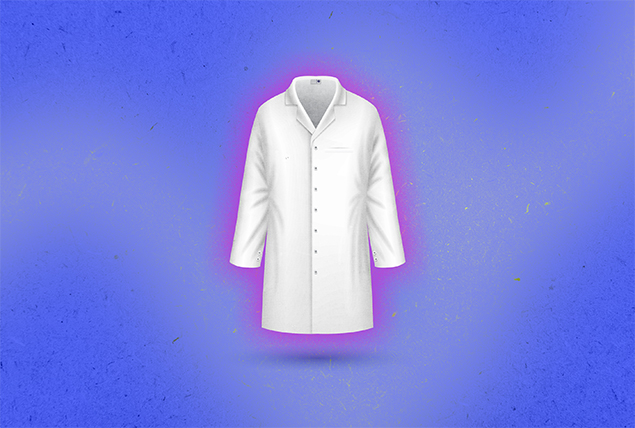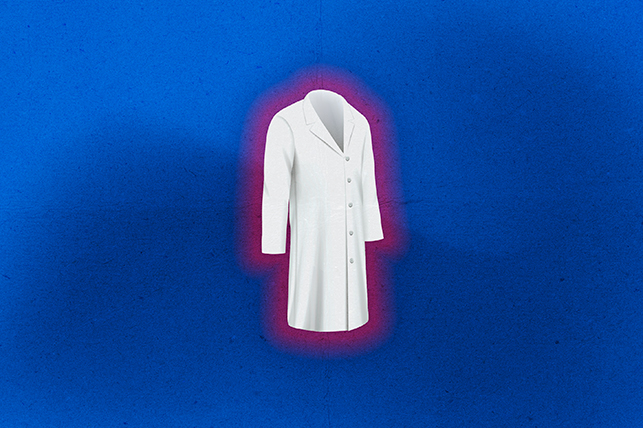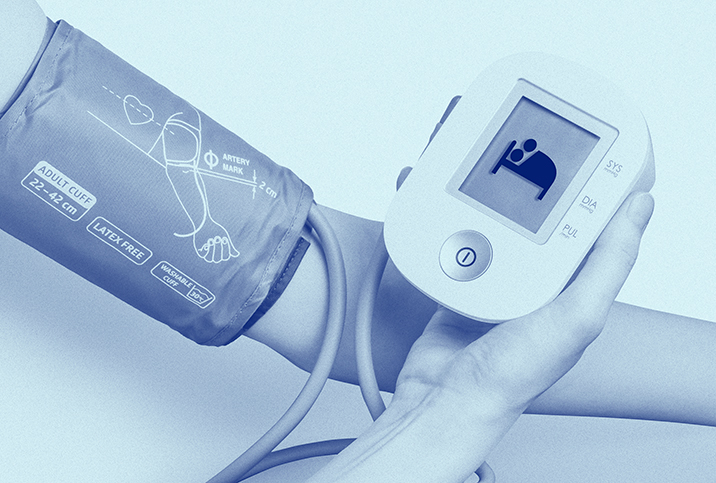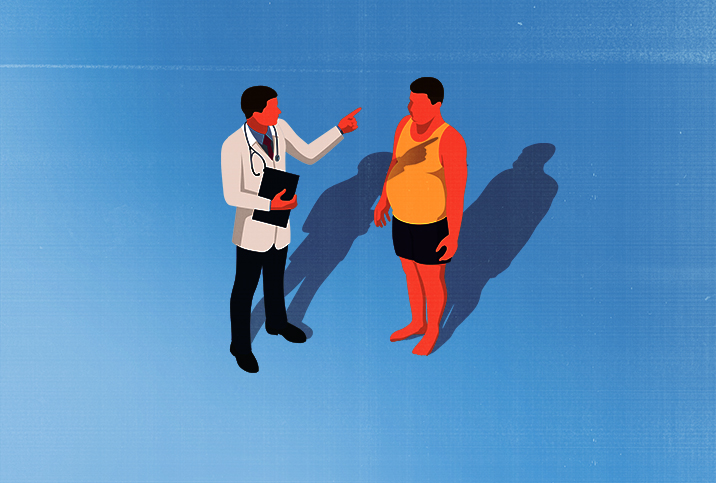The Who, What and Why of White Coat Syndrome

Thirteen-year-old Krishna visited the doctor with symptoms of polycystic ovary syndrome (PCOS) and left with a newfound distaste for the healthcare system.
Krishna worried she had PCOS, a common condition affecting between 6 percent and 12 percent of women of reproductive age in the United States alone. PCOS can lead to long-term health and fertility issues if left untreated.
"They basically told me, 'We don't care unless you want to get pregnant,'" recalled Krishna, who preferred not to use her last name for privacy reasons. "I was told to lose some weight and, essentially, just go away."
This formative experience tainted Krishna's relationship with the healthcare system. Since then, she has experienced heightened anxiety and wildly varied blood pressure levels in clinical settings, something known as white coat syndrome.
"It's a common condition which affects up to 1 in 12 people," said Hana Patel, M.B.B.S., a general practitioner and mental health specialist in London.
When Patel comes across a potential case, she asks patients to check their blood pressure at home and keep a blood pressure diary to ensure the correct diagnosis.
It's a vicious cycle, she explained.
"Higher blood pressure as a result of white coat syndrome can lead to procedures or treatments being postponed or canceled when a higher blood pressure reading indicates a potential risk," Patel said.
What do we know about this condition?
White coat syndrome, or white coat hypertension, is an actual medical diagnosis that is determined when you have at least three in-office blood pressure readings which are higher than your normal at-home readings, according to Cleveland Clinic.
Recent studies have indicated a link to increased cardiovascular risk in people with white coat syndrome. A lack of understanding can also lead to patients being incorrectly prescribed blood pressure medication.
It may be a cardiological condition, but white coat syndrome is linked to psychology and anxiety. A 2015 paper suggested that the "condition is likely caused by the patient's anxiety within the physician's office and in the presence of the physician."
These findings have catalyzed investigations into how the patient-healthcare practitioner relationship could be improved.
What's wrong with patient-practitioner relationships?
According to statistics from the Kaiser Family Foundation, Black people are less likely to trust healthcare professionals. Gabrielle Jones, Ph.D., is a licensed psychologist in California who founded Steady as a consultancy business to fight medical discrimination.
As a Black woman, Jones was acutely aware from a young age that getting pregnant and having a child would put her life at disproportionate risk, thanks to the U.S. healthcare system's history of racial inequities.
"When I sit in medical waiting rooms, the anticipation alone makes my heart rate rise and my palms sweaty," Jones explained. "I used to work in a hospital setting, and I saw those same responses a lot amongst minoritized people."
When some of us step into medical settings, the awareness of potential racial inequities, fatphobia and transphobia looms heavy, causing us to fear the worst.
Social stigma
The same can be said of sexual healthcare. Historically, sex workers, drug users, LGBTQIA+ people and people of color have been stigmatized. Jones pointed out another factor that can make medical settings feel even more intimidating.
"When you factor in substance use or sexual health, there's a moral component," she explained. "Professionals can make people think they're a bad person or that they're 'dirty.'"
Medical discrimination can also impact treatment. Both Jones and Krishna highlighted that race can lead doctors to make incorrect presumptions about health issues that commonly affect people of color.
Some doctors also appear unable to navigate medical fatphobia.
Kat, whose full name was withheld for privacy reasons, recalled numerous experiences of "weight-shaming" throughout her life. She said she was forced to weigh herself despite asking not to, which is completely fine in the vast majority of cases.
She has experienced this discrimination in sexual healthcare settings, too.
"I've sought out contraception and not been offered it due to being 'overweight,'" she said. "But I wasn't offered any alternative."
What can we do about it?
The most common response to white coat syndrome is at-home blood pressure testing.
"There is reason for further investigation," Patel said. "You might be asked to wear a 24-hour monitor that checks your blood pressure throughout the day to check if it's truly elevated, as there is a recognized association between white coat hypertension and adverse cardiovascular outcomes in older adults."
Arguably, more empathetic practitioners and increased mental health training could also be helpful. Jones advised looking at doctors' biographies, too.
"Some might be LGBTQ-friendly or they might endorse harm reduction, which tends to mean they're more responsive to the needs of substance use communities," Jones said.
It's also common for harm reduction services to include sexual health screenings.
Jones said many of the issues linked to white coat syndrome are, ultimately, systemic. They won't change overnight, but they can be alleviated by increased diversity training and culturally responsive care, a healthcare approach that recognizes and integrates someone's cultural background.
"This can mean looking at indigenous healing practices and incorporating spirituality, but on a purely professional level, it can just be about recognizing the institutionally racist practices that hinder patient satisfaction," Jones said.
The bottom line
White coat syndrome can affect the emotional and physical health of people. Someone experiencing white coat syndrome may not receive the healthcare treatment they need and may skip seeking treatment altogether. Fortunately, some healthcare providers are examining better ways to avoid bias.
Do you need to find a new healthcare professional? Giddy Telehealth combines access to high-quality doctors in various specialties with an easy-to-access online portal. Some healthcare providers offer same-day appointments or video consultations.


















